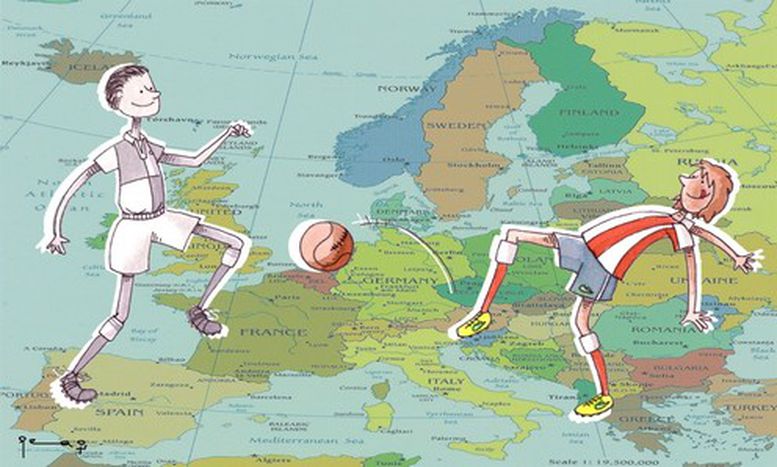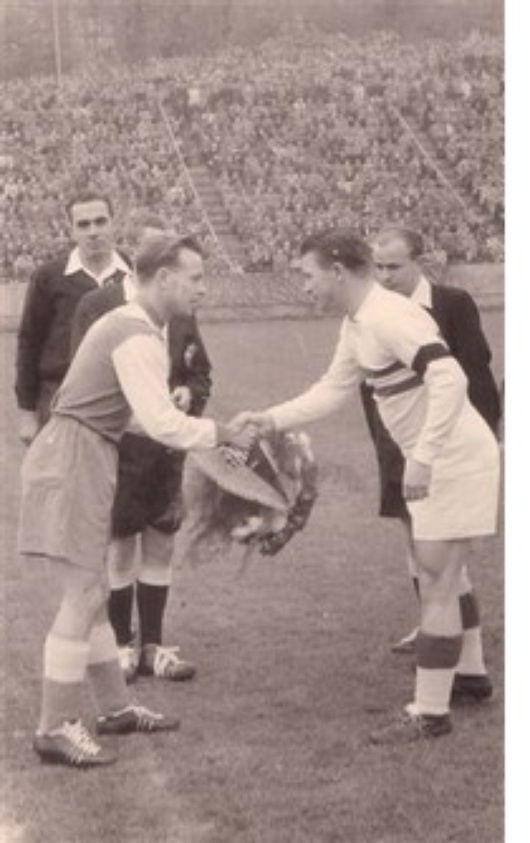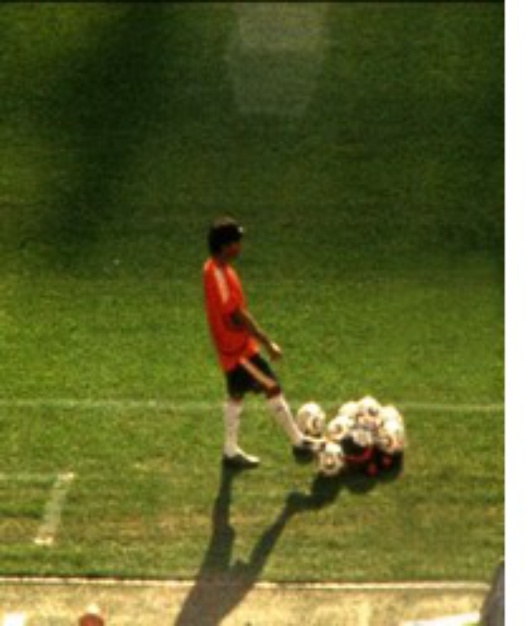
50 years of football - of Hungarians and Frenchmen
Published on
Translation by:
Andrew BurgessFerenc Puskás and Vikhash Dhorasoo's parallel career paths outline two universes - both of which feature a round ball
Since 1995, the Bosman ruling and Article 39 of the Treaty of Rome, concerning the free movement of workers between European member states, have made their mark on the sports fields. It also explains a never-ending succession of transfers and transactions featuring the golden boys of the game.
Ferenc Puskás, 'galloping major' of Europe
 The career of footballer Ferenc Puskás first took off in Hungary, where he became one of the stars of the Mighty Magyars 1950s national team. Seen as a hero in his country, he left for Budapest during the Soviet repression of 1956. After becoming a figure of protest against Communist dictatorship, Puskás resumed his career in Spain, just as Europe was constructing its own identity and formulating its own future.
The career of footballer Ferenc Puskás first took off in Hungary, where he became one of the stars of the Mighty Magyars 1950s national team. Seen as a hero in his country, he left for Budapest during the Soviet repression of 1956. After becoming a figure of protest against Communist dictatorship, Puskás resumed his career in Spain, just as Europe was constructing its own identity and formulating its own future.
The whole of the footballing world mourned Puskás's passing on November 17, 2006. At 80, Alzheimer’s disease consumed him, leaving behind him an image of a footballer before his time. The rise of the 'Galloping Major', born April 2, 1927 in Budapest, ran hand in hand with that of post-war Hungary.
From the age of 16, he entered into the first team at Budapest Honvéd, the club of the Hungarian army, and became the clubs’ top scorer (with 357 goals in 354 matches). 'I wouldn’t leave Budapest, my parents and my friends for anything in the world,' he repeated to all the major European clubs who came knocking on his door. However, history was to change his destiny.
In 1956, the insurrection of Budapest, which would quickly be bought to the ground by the Soviet tanks, drove Puskás to exile. The government-controlled media accused him of being a defector and alcohol smuggler. But this was a second life for Puskás, and it was that which was going to propel him to the top of his game.
From 1958 to 1966, he was the star at the Santiago Bernabéu stadium (Real Madrid), piling on the goals (324 in 372 matches) and the trophies (3 European Cups and 5 Spanish Championship titles).
He would even make a short career for himself at the heart of the Spanish national team during the 1962 World Cup campaign.
50 years later, and football has become a spectacle performed by real professionals, a giant business where money takes priority over moral values. Footballers today ply their trade abroad more for financial reasons.
Vikash Dhorasoo – shared view
 Frenchman Vikash Dhorasoo is a player on the fringe of the football system: sacked by his club Paris Saint-Germain at the end of 2006, the German World Cup finalist has produced a documentary on his role as a replacement - which didn't please everybody.
Frenchman Vikash Dhorasoo is a player on the fringe of the football system: sacked by his club Paris Saint-Germain at the end of 2006, the German World Cup finalist has produced a documentary on his role as a replacement - which didn't please everybody.
34 years old in October, the French international of Indo-Mauritian origin is ready to leave the merciless world of football. His film 'Substitute', produced along with Fred Poulet, is soon to be released onto the big screen and recalls 'his' World Cup 2006 in Germany, albeit as a replacement, from the touchline.
In the summer of 2005, he decided to follow his heart, and left AC Milan to rejoin Paris Saint-Germain (PSG). Despite an average season, he won the French Cup, scoring the decisive goal in the process. 'It is my most pleasurable footballing memory. I left Italy to become an important member of a team. That night, I did not regret doing it at all.'
However, in the autumn 2006, Dhorasoo found himself featuring on numerous television programs. The tone had changed. PSG had told him that he was no longer part of the club after having made critical comments about the teams’ manager in the press. Four months after the World Cup, where he barely kicked a ball, his dream had vanished, and he no longer seems to be the same: 'That was in the past, but it really was just a big con. At my age, it is much quicker to put things into perspective.'
In the unforgiving world of football, Dhorasoo’s name is now a thing of the past. 'I now laugh about it myself,' he defends. 'Football is my life, but there are things that are more important, like a loving family.'
To celebrate 50 years of the European Union on March 25, we are presenting a series of cross portraits in the countdown, illustrating what has changed in half a century. Cafebabel.com will publish the series in a dossier marking the historic signing of the Treaty of Rome on March 22. Look out for the next instalment in the series, 'Work across the continent', which is onsite from March 9
Translated from 50 ans de football, entre politique et merchandising



